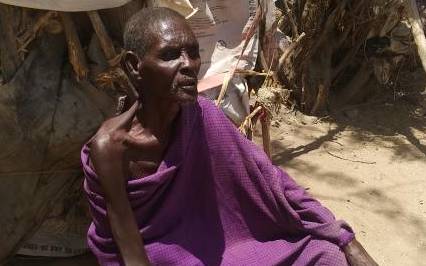×
The Standard e-Paper
Kenya’s Boldest Voice

Wilson Kokuro 65 a resident of Kakwenya village in Turkana Central who were waiting for relief food even as hunger bites parts of the region. 16.03.2019 [PHOTOS: BAKARI ANG'ELA]
As the sun scorches intensely at cradle of mankind, wind blows from all directions making it impossible for villagers of Kakwayang to fend for themselves, and they have to huddle under the drying trees.